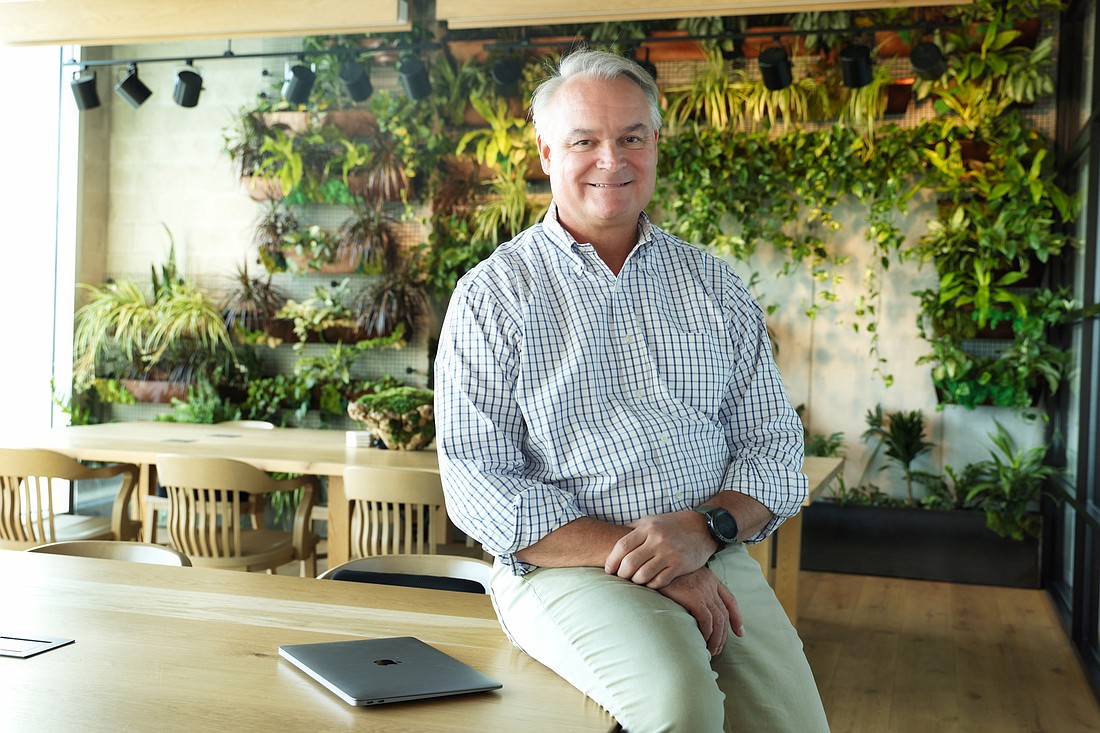- October 22, 2024
-
-
Loading

Loading

Startup: HealthMe
Year founded: 2019
Founder: While working at Naples-based Orthopedic Surgeon & Sports Medicine Specialist OrthoCollier, a division of Neuroscience & Spine Associates, managing partner Dr. Michael Havig became aware of a disconnect in the industry: uninsured patients wanting to pay with cash were being turned away. The problem? A pricing model hadn’t been established. So Havig fixed it.
Read more: Teen startups delivered key lessons for today's leaders
Investment: To get started, Havig, 57, devoted a chunk of his own money — he declined to disclose an exact amount — into developing a platform that would help health care-related centers develop a price model for bundling services as well as an a-la-carte list of services with price points.
Havig raised $100,000 from the Adrenaline Venture fund, through the Tamiami Angel Investors in Naples, in 2019 after getting a solid base under the platform. He matched that investment with another $100,000 of his own.
By the end of 2020, he had secured a pre-seed round investment of $600,000. Then last year the business received $1.25 million in seed funding.
Havig really started noticing the problem through a number of his friends who are business owners. They didn’t think it made sense to spend thousands of dollars on insurance in their position so, he says, they were uninsured.
When his staff turned a few of those friends away for not having insurance, those friends called Havig out. “This was pretty frustrating for me,” he says.
The office didn’t have services bundled with costs attached. There was no a-la-carte system in place. So when a patient came in, it was unclear what they should be charged. “Most physicians don’t know how to (handle) retail services,” says Havig, who still practices medicine.
The HealthMe platform — Havig calls it Shopify for health services — is designed to make that easier.
Read more: 5 things startups need to do to woo investors
Charging between $150 to $500 a month, depending on the size of the health care provider, HealthMe provides 300 package options for clients to choose from, from surgery bundles to basic office visits. Then clients, the medical practices, are able to set their own pricing model for each service and bundle.
The platform caters to direct-pay patients, which includes self-insured business owners, medical tourists and those patients who are uninsured, out-of-network and with faith-based sharing ministries.
“It increases access to patients to see a doctor in a timely fashion at a reasonable price,” Havig says, adding it adds a revenue stream for medical practices missing in the industry. “We’re serving two sides of the market.”
Since 2016, the company has grown past Florida to some dozen states, from Georgia and South Carolina to California and South Dakota. This year, Havig says the platform has been used by over 1,000 orthopedic surgeons. But next year, he’s expecting that number to jump to 4,500-5,000. He declines to disclose specific revenue figures.
In addition to the monthly service revenue stream, HealthMe also gets a small percentage of the technology fee it charges clients. There are other potential ways to monetize the platform, though Havig says those are a ways off from being a reality.
For a platform designed to turn a difficult problem into an easy process, there was a lot of convincing, and customer education, in the beginning.
“People had a hard time wrapping their minds around it,” Havig says, adding a few wondered if it was even legal. “To get physicians and practices to understand that they can bundle services using data, … it was hard for them to get over that.”
The market has been catching up, though. “With any business, it gets easier with traction,” he says.
One assist with that traction? Credibility. When first starting out, Havig could only point to the success his own practice was having. Now other groups are seeing results.
Business testimonials seem to help as well. The company is seeing demand from a business that recommended the platform to other health-related companies.
Another kind of testimonial came Nov. 14, when HealthMe was named a 2022 UCSF Rising Star in the patient cost savings category, competing against more than 1,000 other health care companies. The award, from the University of California-San Francisco, was announced at an event in Las Vegas, where Havig was present. "That just validates you," he says."It validates that we can change how health care is charged in the country."